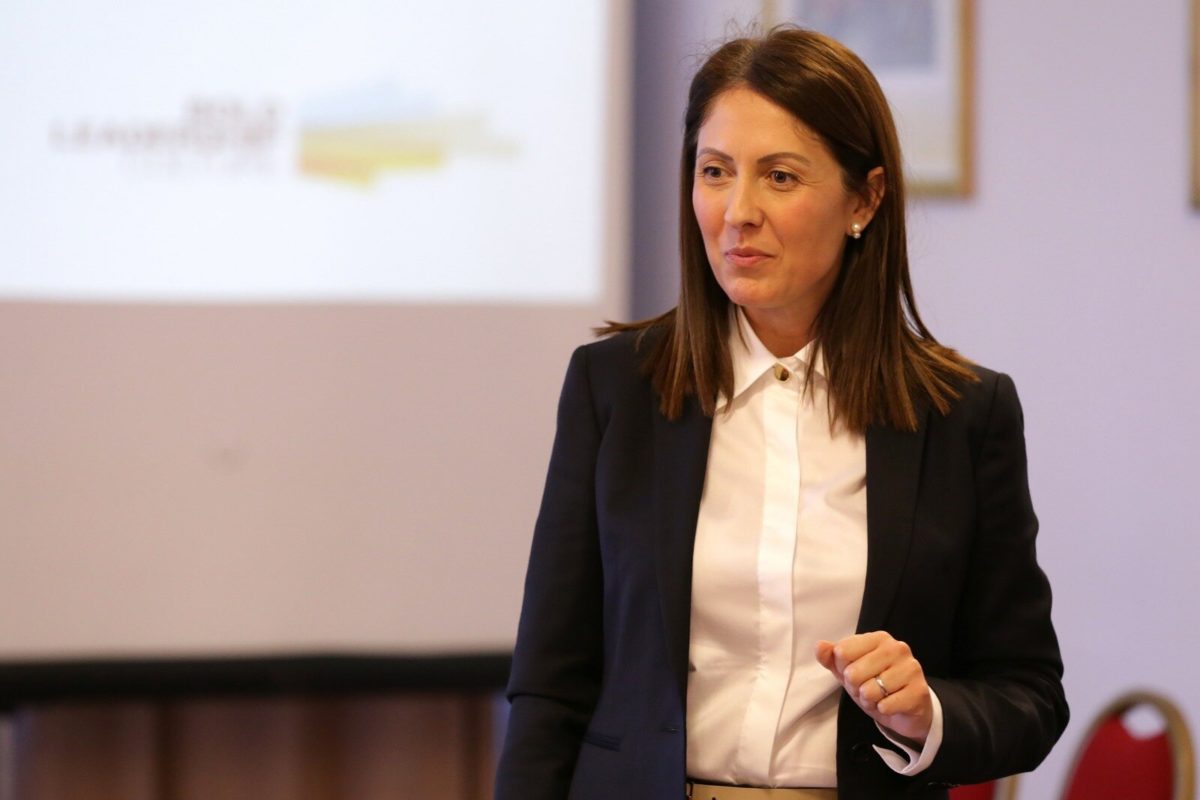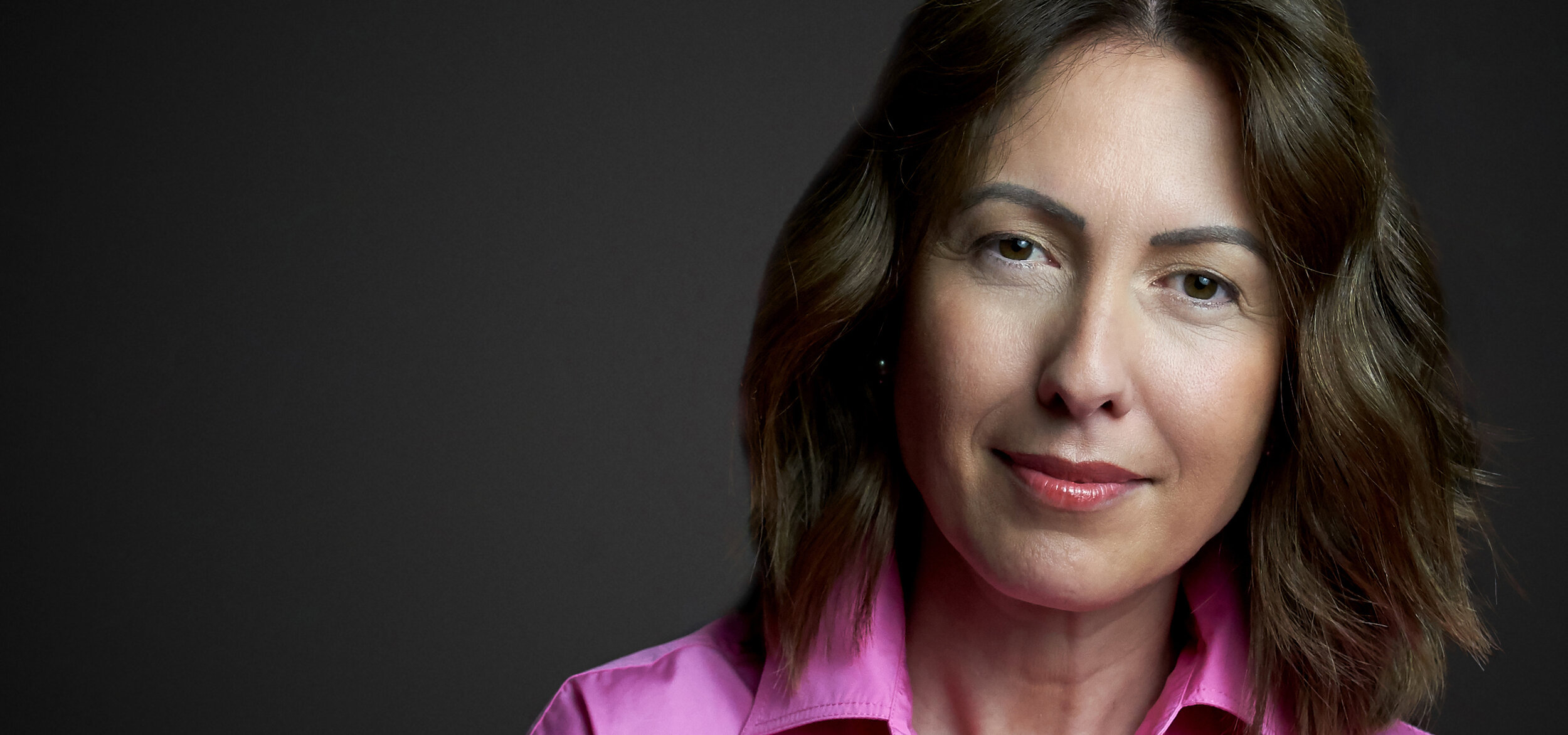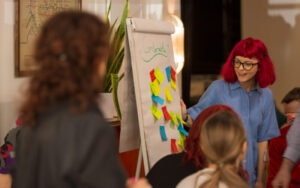My journey into coaching
“ORSC was an eye-opener, a personal transformation”
Zana joined CRR GLOBAL as an ORSC front of room leader in May 2022, and will work closely with CRRUK and the UK ORSC Leader body. With a background in corporate leadership, Zana built up a wealth of business experience before making a fundamental shift in her career path and becoming a coach. Since reinventing her career, Zana has founded her own business, Bold Leadership Culture, has written and published a book called Bold Reinvented, and is an Executive Coach and Trainer/Mentor for the PwC Business Coaching Diploma.
We caught up with Zana to find out more about her journey into ORSC.
Why coaching?
Stepping back into the corporate world with my new coaching identity made me realise that coaching individuals is not enough. So much of what we encounter as coaches is about the wider team.
With a background in business leadership and corporate communications and marketing, how did you find your way into coaching?
When you’re in the middle of a certain career, you begin to think that’s the only identity you could have. My corporate career has always been a big part of my identity, so once that part of my life ended coaching really helped me to shift perspectives and reinvent myself.
I made the decision to go to coaching training to help me clarify what was next for me. What happened over that first weekend introduction was magic. I discovered a love for coaching, and quickly realised that this could be my next career. So, I completed my training with Co-Active and went back to the corporate world that I knew so well as a coach – newly reinvented and very enthusiastic.
What attracted you to system coaching and team coaching?
Stepping back into the corporate world with my new coaching identity made me realise that coaching individuals is not enough. So much of what we encounter as coaches is about the wider team.
In the corporate world, we often work with an individual that a company has identified is in need of coaching sessions. A lot of organisations have the kind of mindset that something is wrong with this leader, or they need help to achieve their potential, so let’s send them to coaching, and see what happens.
Often, the change does happen. If there’s no resistance, and they are open to having coaching conversations, the change happens. But what also happens is that they go back to their systems, they go back to the organisation, they go back to teams, inspired from their coaching session and find that the system is in its own reality – it continues to work as it always has.
That’s when I realised that coaching individuals is not going to be enough. Not only that, but I’ve had so many individual clients that actually asked me to bring the perspectives and language to wider teams and organisations. Naturally, the answer was yes, but coaching teams is not the same set of competencies as coaching individuals. So, I needed to find and learn the new skills.
Finding Organisation and Relationships Systems Coaching (ORSC)
It was not just a set of skills that I’ve learnt. It was a personal transformation. ORSC taught me to explore what it really means to be in a relationship, what happens in a relationship, and how we can relate in a much more skilful way.
What attracted you to ORSC?
For that, ORSC was another magic. What was additionally magical about ORSC is that I went into the training with the goals of learning new skills to coach teams. What I was not expecting was that my idea of relationships in general would completely change. It was not just a set of skills that I’ve learnt. It was a personal transformation. ORSC taught me to explore what it really means to be in a relationship, what happens in a relationship, and how we can relate in a much more skilful way.
All of that was not on my horizon when I started the training and it was such an eye opener. It has shaped all of my relationships, even in my private life.
I remember at the time somebody said, “Once you go through ORSC training, one thing is for sure, you will never ever look at relationships in the same way”. That has absolutely been my experience.
What is it about ORSC that fundamentally changes your perspective on relationships?
It’s human nature that every time that something happens in a relationship – a conflict or misalignment – we come at it from the perspective of “why are they doing this to me?”. On the other side, the other person often has much the same mindset.
When you go through the training, you actually realise that’s a signal for change. Nobody’s doing anything to anyone. The real question is “What’s trying to happen here?”
In any relationship, shifting that starting position from “why are you not understanding me”, or “why are you doing this to me”, to “What’s the change that wants to happen?” gives you a new perspective which is awfully difficult and extremely liberating at the same time.
How can ORSC improve the way that teams work together?
As teams, or parts of a system, the way we talk to each other and interact with each other impacts the way we create things together. ORSC shows you the true meaning of co-creation.
Again, human nature is such that if we create something together that we like, we take ownership. If we don’t like the result, we blame “the other.” ORSC raises our awareness of our contribution to everything. Whether the end result is good or bad, we all co-created it, and that means that we can all change it together.
ORSC provides the tools, the language, and the way of being with each other that can enable change for us.
What inspired you to become an ORSC front-of-room leader?
First of all, it was the magic that happened in the room when I studied ORSC myself. I could say it’s because of the curriculum, but we know it’s not only that, it is because of the people who were delivering it. I saw the impact that the leaders had on us as a group, and I really wanted to have that impact on other people. I wanted to share that passion and that love for the work with other people.
The importance of coaching, and the role of International Coaching Week
It is international coaching week – what do you think is the most important takeaway for people this week?
It could be my passion speaking, but I don’t think that we will be able to function in life and work without coaching language. Thinking specifically about system coaching, ORSC tools can set you up for success: In the middle of your teams. In the middle of your organisations. In the middle of your communities of your families.
I think that while we celebrate that throughout one week in a year, we should not forget to acknowledge the importance of coaching the rest of the year. I honestly don’t think that we will ever have enough coaches in the world. And by that, I don’t mean simply professional coaches but also people who use coaching skills to simply navigate their life and relationships.
How can people who are new to coaching find the right coach for them?
I think that everyone needs coaching, almost for their own personal hygiene. These don’t have to be professional coaches. These could just be people with a coaching mindset and some of the coaching skills in their toolbox.
I truly believe that people will find their own way through books, through the internet, through word of mouth consulting with somebody in their own network. I always suggest people start with reading – there is a wealth of information out there and some passionate people who are happy to share their experiences. It is the obligation and responsibility of our community of coaches to underline the importance of research, of seeking out certified coaches and accredited programs and competencies.
Why should the ORSC curious take the leap?
Whatever we do, we’re in a relationship. Relationships are at the heart of all of our most important decisions and choices in our lives. ORSC can fundamentally change the way we interact with others – in our careers, communities and families.
It’s a powerful tool, and one I’d recommend to anyone who’ll listen.
Find out more about ORSC, or browse the courses available.








